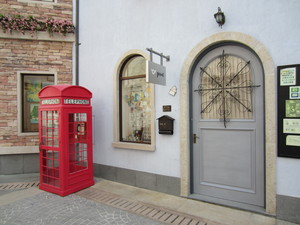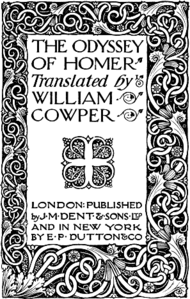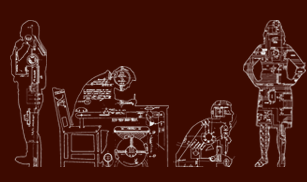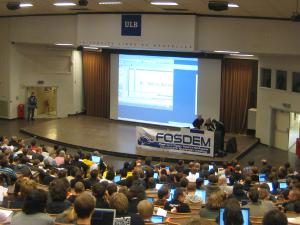Saturday, December 21. 2013
Hallstatt in China

Hallstatt in China's Guangdong province
It was a bit tricky to get there. I found only limited information online. The place is near Luoyang, which is part of an area called Boluo, near the town Huizhou. Getting to Huizhou was mostly hassle-free, there are many trains every day from Guangzhou and it takes about two hours. How to come to Luoyang/Boluo is another story. I had two bus numbers I found in some Internet forums, but I couldn't find them at the train station. So either the information was wrong or the buses with that numbers are departing from another place in Huizhou. I also had some GPS coordinates I found online of the copycat Hallstatt, but it turned out later that they were not very accurate.

The entrance
What is interesting to know is that this place isn't primarily a tourist destination. It's a housing development, people are supposed to live here. However, I think nobody lives here yet, because except for the town's center, everything is still in construction. There are a number of similar projects in China. Tianducheng in eastern China, which rebuilts parts of Paris, has gotten quite a lot of media attention lately as an example for the Chinese housing bubble. Almost nobody lives there and it's mostly a ghost town. As the chinese Hallstatt isn't yet ready to house anyone, the future will tell if it'll fall to the same fate.
There were a number of things that made this place weird. The most obvious thing: You usually don't see tropical plants in an austrian town. I have no idea why they had a (fake/nonworking) red, british-style phone booth. Maybe for a chinese Britain isn't that far from Austria after all. Although this place isn't primarily meant as a tourist destination, it certainly attracts a lot of them. It was quite crowded. I haven't seen anyone who looked like being from Austria though.

British style fake phone booth
I'd like to finish with a quick comment. When reading western news commenting about this case and others, they're often quick in condemning this kind of "copycat" culture. I think one needs to be careful with that. The importance of the "original" is something that is deeply rooted in cultural norms and traditions. Sticking to the original is something that's probably more important in European cultures than in China. But I don't think either of them is right or wrong, it's just a different approach to culture. After all, it doesn't hurt anybody if someone is rebuilding Austrian villages in China. Also, there is almost certainly no legal issue at stake here. While it may be debatable if a town's layout can be covered by copyright, Hallstatt is a historic city. So if there is any copyright on it, it's already expired.
Pictures from Luoyang
Pictures from Chinese Hallstatt
Some Links:
Blog entry about Hallstatt / China on thechinachronicle.com
Blog entry about Hallstatt / China on liongrass.hk
Tuesday, March 5. 2013
Questioning copyright treaties
Yesterday, I read a news about the green party's proposals for a copyright reform (strictly speaking, there's no copyright in Germany, it's called "Urheberrecht", but I'll stick with the term copyright, because it's commonly understood). One point was that they claimed they don't see any perspectives for a so-called cultural flatrate due to EU law. The basic idea of a cultural flatrate is that it would legalize private filesharing while putting a fee on internet access.
My point is more the reasoning than the issue itself. Because that's a repeating pattern. Whenever someone makes a proposal to change something relevant in copyright or patent law, this is pretty much always the conclusion: It's not possible due to one or another international law or treaty. The discussion ends before anyone can make any real argument why some copyright change might be a good idea or not.
The EU directive that, according to the green party, forbids a cultural flatrate is the EU Copyright Directive from 2001. This directive is itself an implementaiton of the WIPO Copyright Treaty from 1996.
Other treaties that are often relevant are the Berne Convention and the TRIPS Agreement of the WTO from 1994.
What all of those treaties have in common and what I find - in its combination - very troubling:
My point is more the reasoning than the issue itself. Because that's a repeating pattern. Whenever someone makes a proposal to change something relevant in copyright or patent law, this is pretty much always the conclusion: It's not possible due to one or another international law or treaty. The discussion ends before anyone can make any real argument why some copyright change might be a good idea or not.
The EU directive that, according to the green party, forbids a cultural flatrate is the EU Copyright Directive from 2001. This directive is itself an implementaiton of the WIPO Copyright Treaty from 1996.
Other treaties that are often relevant are the Berne Convention and the TRIPS Agreement of the WTO from 1994.
What all of those treaties have in common and what I find - in its combination - very troubling:
- They've been created at a time where many people affected by it today weren't allowed to vote or even weren't born.
- They were created in a time where the Internet as we know it today and the issues related to it simply didn't exist.
- It's hard to impossible to change those treaties.
- There has never been a wide public discussion about any of those treaties, the terms TRIPS, Berne Convention or WIPO copyright treaty are mostly unknown to the general public.
Posted by Hanno Böck
in Computer culture, Copyright, Politics
at
21:44
| Comment (1)
| Trackbacks (0)
Defined tags for this entry: berneconvention, copyright, culturalflatrate, eu, eucopyrightdirective, trips, wipo
Saturday, October 8. 2011
Free rar unpacking code
One of the few pieces of non-free software I always needed on my system is a rar unpacker. Despite that there are very good free alternatives for high-compression archivers like 7-zip or tar.xz, many people seem to like relying on a proprietary format like rar and it's in widespread use.
Years ago, someone came up with a GPLed rar unpacker, but sadly, that was never updated to support the rar version 3 format. Its development is stalled.
For that reason, some time back I suggested to the Free Software Foundation to add a free rar unpacking tool to their list of high priority projects - they did so. Happily I recently read that they've removed it. There's The Unarchiver now, based on an old amiga library. It supports a whole bunch of formats - including rar v3. It's mainly a MacOS application, but it also provides a command line tool that can be compiled in Linux.
It needs objective C, the gnustep-base libraries and it took me some time to get it to compile properly. For the Gentoo-users: I already committed an ebuild, just run "emerge unar".emerge TheUnarchiver
Update: Changed ebuild name to unar, as that's the name upstream uses for the command line version now.
Years ago, someone came up with a GPLed rar unpacker, but sadly, that was never updated to support the rar version 3 format. Its development is stalled.
For that reason, some time back I suggested to the Free Software Foundation to add a free rar unpacking tool to their list of high priority projects - they did so. Happily I recently read that they've removed it. There's The Unarchiver now, based on an old amiga library. It supports a whole bunch of formats - including rar v3. It's mainly a MacOS application, but it also provides a command line tool that can be compiled in Linux.
It needs objective C, the gnustep-base libraries and it took me some time to get it to compile properly. For the Gentoo-users: I already committed an ebuild, just run "emerge unar".emerge TheUnarchiver
Update: Changed ebuild name to unar, as that's the name upstream uses for the command line version now.
Sunday, September 11. 2011
Michael S. Hart was a true visionary
 Michael S. Hart, the founder of Project Gutenberg, died some days ago.
Michael S. Hart, the founder of Project Gutenberg, died some days ago.Project Gutenberg, if you don't know, is a webpage collecting electronic books online. It was founded in 1971 (yes, long before the Internet as we know it today existed), when Hart typed the Declaration of Independency on a Xerox mainframe. Hart can be seen as the inventor of electronic books - 40 years ago.
We're still waiting for ebooks to get into mainstream. Currently, ebook reading devices are available, but their usage is not widespread yet. But I'm almost certain that ebooks will become very important within the next years. Hart had that opinion 40 years ago.
Today, Project Gutenberg has about 36.000 books. Most of them are public domain, because their copyright expired. There are other similar projects today: Wikisource is a sister project of Wikipedia and archive.org has a lot of scanned books, including most of the public domain books digitalized by Google.
Some mission statements for Project Gutenberg from Michael S. Hart (taken from Wikipedia) I find that sum up things very well:
"Encourage the Creation and Distribution of eBooks"
"Help Break Down the Bars of Ignorance and Illiteracy"
"Give As Many eBooks to As Many People As Possible"
Posted by Hanno Böck
in Books, Computer culture, Copyright, English
at
19:03
| Comment (1)
| Trackbacks (0)
Sunday, July 10. 2011
Welcome to Fake Disneyland
 Maybe you've heared that some years ago, a story about a fake Disneyland amusement park in China made some rumors in the media. As I love good fakes, I obviously had to take a look. The amusement park in question is Shijingshan Amusement Park ( 北京石景山游乐园) and is located in Beijing. It can easily be reached, as it has its own metro station.
Maybe you've heared that some years ago, a story about a fake Disneyland amusement park in China made some rumors in the media. As I love good fakes, I obviously had to take a look. The amusement park in question is Shijingshan Amusement Park ( 北京石景山游乐园) and is located in Beijing. It can easily be reached, as it has its own metro station. The park had the advertisement slogan "Disneyland is too far to go" some years ago and some images of Mickey Mouse and other Disney figures in the park boosted the story (see Wikipedia for details). Also, like all Disneylands, the Park has a Cinderella castle. It seems in the meantime things have changed - we didn't see any Disney charakters there. The only thing that still reminds of the story is the Cinderella castle - but as much as Disneys lawyers might want this, Cinderella is not a Disney invention after all.
The park had the advertisement slogan "Disneyland is too far to go" some years ago and some images of Mickey Mouse and other Disney figures in the park boosted the story (see Wikipedia for details). Also, like all Disneylands, the Park has a Cinderella castle. It seems in the meantime things have changed - we didn't see any Disney charakters there. The only thing that still reminds of the story is the Cinderella castle - but as much as Disneys lawyers might want this, Cinderella is not a Disney invention after all.I even found a fake Mickey Mouse (at least I think it was fake, it looked somehow wrong) in Beijing, but it was not in the amusement park, it was in the olympic village.
 The story of a fake Disneyland seems highly exaggerated. The Cinderella is probably no issue at all, as I doubt there's anything that makes it a special "Disney-Cinderella". I'm not sure if there was a copyright violation at all: The fake Mickey Mouse and other figures in combination with the solgan could probably be considered parody - which is legally allowed in most of the world's copyright laws.
The story of a fake Disneyland seems highly exaggerated. The Cinderella is probably no issue at all, as I doubt there's anything that makes it a special "Disney-Cinderella". I'm not sure if there was a copyright violation at all: The fake Mickey Mouse and other figures in combination with the solgan could probably be considered parody - which is legally allowed in most of the world's copyright laws. The park itself was kind of weird. Large parts of it were in really bad shape. Some looked like a construction site, many parts were not operational. On the other hand, other parts of it were really well-designed. One could hardly imagine that this was the same park.
The park itself was kind of weird. Large parts of it were in really bad shape. Some looked like a construction site, many parts were not operational. On the other hand, other parts of it were really well-designed. One could hardly imagine that this was the same park. A nice thing to mention: They had a dance dance revolution like arcade machine - but the game on it was StepMania - a free software game. I think this is the first time I saw a free software game in an arcade machine.
A nice thing to mention: They had a dance dance revolution like arcade machine - but the game on it was StepMania - a free software game. I think this is the first time I saw a free software game in an arcade machine.Unlike most european amusement parks, the pricing concept here is different - the entrance fee costs almost nothing (10 Yuan, approximately 1 €), but you pay for every ride.
Pictures from the park
Posted by Hanno Böck
in Copyright, English, Life
at
21:52
| Comments (0)
| Trackbacks (0)
Defined tags for this entry: amusementpark, asia, beijing, china, cinderella, copyright, disney, disneyland, fake, freesoftware, shijingshan, stepmania, travel, trip2011
Wednesday, March 23. 2011
Review on Pioneer One
 Pioneer One is a science fiction series. What's special about it: It's completely supported by donations and it's distributed via BitTorrent. It comes under a Creative Commons Attribution-NonCommercial-ShareAlike license.
Pioneer One is a science fiction series. What's special about it: It's completely supported by donations and it's distributed via BitTorrent. It comes under a Creative Commons Attribution-NonCommercial-ShareAlike license.I read about the first episode a while back, but I forgot about it. Recently, I stumbled upon it again and took the opportunity to watch it. Up until now, just two episodes are completed, Episode three is announced for 28th of March and Episode four is in production. Further episodes will depend on the donations they get.
The rough story: A space ship is coming down over Montana and lands in Canadian territory. It spreads radiation, so the first suspicion is that it might be a terrorist attack. They find a probably russian human inside the ship, unconscious, with signets from the Sovjet Union. Their suspicion: The Sovjet Union has sent humans to settle on Mars and this one is a child coming back. The case is investigated by members of the US department of homeland security.
I found it pretty good. You can see overall that it's an independent production (for example the offices just don't look like offices from the US department of homeland security), but that makes no odds. The storyline is exciting, the actors do their job pretty well, the characters are interesting. My favorite character until now is Zachary Walzer, a scientist who's been endorsing Mars missions to the US authorities for a long time.
From the story concept, I'm not sure how this will make a very long series. At the moment it sounds like at some point they know what's going on and then it may not be interesting any more. Though there were some hints in which direction it might get to continue the story after that. I'm looking forward to see more.
If I raised your interest, go ahead and download Pioneer One.
Posted by Hanno Böck
in Computer culture, Copyright, English, Movies
at
20:37
| Comments (0)
| Trackbacks (0)
Tuesday, November 16. 2010
Die GEMA und die Kinderlieder
 Vor einigen Tagen wurde gemeldet, dass die GEMA eine neue Einnahmequelle gefunden hat: Kindergärten und Laternenumzüge. Die waren nämlich, so erfahren wir, bislang meistens illegal, weil die BetreuerInnen der Kleinen hemmungslos Noten kopiert haben, obwohl das streng verboten ist. Um diesen untragbaren Zustand schleunigst zu beenden, bieten die GEMA und die VG Musikeditionen den Kindergärten nun einen Lizenzvertrag an. Die GEMA erklärt, man stoße dabei auf »großes Verständnis«. Ich kann mir das sehr gut vorstellen, wie groß das Verständnis von Kindern ist, wenn man ihnen erklärt, dass nächstes Jahr der Laternenumzug aufgrund der prekären Finanzlage der Gemeinde leider ausfallen muss. Da lernen sie gleich etwas über Finanzpolitik und Sparzwänge. Auch wird ihnen sicher schnell deutlich, dass die Nachricht des Sankt Martin, man solle doch teilen was man hat, nicht für Noten gilt - zumindest nicht solange man nicht einen Lizenzvertrag hat.
Vor einigen Tagen wurde gemeldet, dass die GEMA eine neue Einnahmequelle gefunden hat: Kindergärten und Laternenumzüge. Die waren nämlich, so erfahren wir, bislang meistens illegal, weil die BetreuerInnen der Kleinen hemmungslos Noten kopiert haben, obwohl das streng verboten ist. Um diesen untragbaren Zustand schleunigst zu beenden, bieten die GEMA und die VG Musikeditionen den Kindergärten nun einen Lizenzvertrag an. Die GEMA erklärt, man stoße dabei auf »großes Verständnis«. Ich kann mir das sehr gut vorstellen, wie groß das Verständnis von Kindern ist, wenn man ihnen erklärt, dass nächstes Jahr der Laternenumzug aufgrund der prekären Finanzlage der Gemeinde leider ausfallen muss. Da lernen sie gleich etwas über Finanzpolitik und Sparzwänge. Auch wird ihnen sicher schnell deutlich, dass die Nachricht des Sankt Martin, man solle doch teilen was man hat, nicht für Noten gilt - zumindest nicht solange man nicht einen Lizenzvertrag hat.Nun ist die Aussage der GEMA, dass das Kopieren von Noten strengstens verboten ist, allerdings nur ein Teil der Wahrheit. Denn extrem viele populäre Kinderlieder sind uralt. Und das Urheberrecht währt zwar lange, aber nicht ewig. In Deutschland endet es 70 Jahre nach dem Tod des Urhebers. (Vorsichtig muss man allerdings sein, wenn es sich um veränderte Neuauflagen handelt - die können weiterhin geschützt sein.)
Um die GEMA-Aktion also weitgehend ins Leere laufen zu lassen, müsste man dafür sorgen, dass zumindest die Kinderlieder, deren Urheberrecht abgelaufen ist, möglichst gut frei verfügbar sind. Ich möchte lieber bestehende Projekte unterstützen als das Rad neu erfinden: Die Wikiseite Choral Public Domain Library (CPDL) sammelt freie Chornoten - ich habe nochmals nachgefragt und auch Kinderlieder sind ihnen dort herzlich willkommen. Ich habe also mit Hilfe des schönen (freien) Programms Lilypond die drei populärsten Laternenumzugslieder gesetzt (als PDF, bei CPDL kann man die Lilypond-Datei und eine Midi finden):
Laterne, Laterne, Sonne, Mond und Sterne (bei CPDL)
Sankt Martin (bei CPDL)
Ich geh mit meiner Laterne (bei CPDL)
(ich weiss, Laternenumzüge und Sankt Martin sind für dieses Jahr vorbei, aber alle KindergärtnerInnen können das ja schonmal für nächstes Jahr vormerken)
Ich würde mich freuen, wenn andere Leute dem folgen und möglichst viele Kinderlieder bei CPDL verfügbar machen, ein tolles freies Projekt damit unterstützen und die GEMA etwas ärgern. Wer mitmacht, darf gerne Links in den Kommentaren posten. Vielleicht basteln wir dann daraus ein PDF-Liederbuch oder ähnliches. Wem das hochladen bei CPDL zu kompliziert ist, der darf mir die auch gern per Mail zukommen lassen, ich kümmer mich dann darum.
(mir zwitscherte gestern noch jemand zu, dass andere ganz ähnliches vorhaben - ist auch noch im Anfangsstadium und das kann sich ja vielleicht gut ergänzen)
Posted by Hanno Böck
in Copyright, Music
at
16:58
| Comments (5)
| Trackbacks (0)
Defined tags for this entry: copyright, cpdl, gema, kinderlieder, laterne, laternenumzug, publicdomain, sanktmartin, vgmusikeditionen
Tuesday, September 7. 2010
Trying to buy an ebook
For a while, I wanted to read the book "The Spirit Level" by Richard Wilkinson and Kate Pickett. But this blog entry is not about this book (I haven't read it yet). Since a while, I have such a nice ebook-reader (well, it's not that nice, read my older blogpost about it, but that's not my point here). I really hate it to carry around kilos of books and I also hate it to decide which books to take with me, so for the first time I tried to actually buy an ebook.
I found that penguin has this book. The price is 9,99 £ - interesting enough, the price for the paper variant is 7,99 £. Bits must be really expensive these days. Anyway, I thought 9,99 £ is still a price I was willing to pay, so I clicked on buying, created an account and so on. I was a bit confused when they asked me for the delivery adress, but hey, I don't mind. At the end, they told me that this book is not available for customers outside the UK.
I mean... it's hard for me to comment on that. How stupid is that? I really don't want to know the strange reason that might have be (I'm pretty sure it has something to do with international copyright law and collecting societies that are unable to arrive in the time of the internet, but I FUCKING DON'T CARE, I JUST WANT TO BUY A BOOK).
So I tried it further. Amazon has the book, but only for it's own ebook reader, the Kindle. All german bookstores I found only have the book on paper.
So - I still don't have the book. I could buy it on paper - but seriously, I don't want that. I bought an ebook-reader recently because I thought this gives me the freedom to read alternately in several books without carrying them around. I thought the time has come for that.
Maybe it's just that simple: The book publishing industry will have to die - just like the music industry, which sadly still refuses to do that finally.
(sidenote: I found that someone experienced nearly the same story - with the same book - and I even know that person. That happened purely by chance.)
I found that penguin has this book. The price is 9,99 £ - interesting enough, the price for the paper variant is 7,99 £. Bits must be really expensive these days. Anyway, I thought 9,99 £ is still a price I was willing to pay, so I clicked on buying, created an account and so on. I was a bit confused when they asked me for the delivery adress, but hey, I don't mind. At the end, they told me that this book is not available for customers outside the UK.
I mean... it's hard for me to comment on that. How stupid is that? I really don't want to know the strange reason that might have be (I'm pretty sure it has something to do with international copyright law and collecting societies that are unable to arrive in the time of the internet, but I FUCKING DON'T CARE, I JUST WANT TO BUY A BOOK).
So I tried it further. Amazon has the book, but only for it's own ebook reader, the Kindle. All german bookstores I found only have the book on paper.
So - I still don't have the book. I could buy it on paper - but seriously, I don't want that. I bought an ebook-reader recently because I thought this gives me the freedom to read alternately in several books without carrying them around. I thought the time has come for that.
Maybe it's just that simple: The book publishing industry will have to die - just like the music industry, which sadly still refuses to do that finally.
(sidenote: I found that someone experienced nearly the same story - with the same book - and I even know that person. That happened purely by chance.)
Posted by Hanno Böck
in Books, Computer culture, Copyright, English
at
22:12
| Comments (3)
| Trackbacks (0)
Monday, April 5. 2010
Easterhegg in Munich
 I visited this year's easterhegg in Munich. The easterhegg is an event by the chaos computer club.
I visited this year's easterhegg in Munich. The easterhegg is an event by the chaos computer club.I held a talk expressing some thoughts I had in mind for quite a long time about free licenses. The conclusion is mainly that I think it very often may make more sense to use public domain "licensing" instead of free licenses with restrictions. The slides can be downloaded here (video recording here in high quality / 1024x576 and here in lower quality / 640x360). Talk was in german, but the slides are english. I plan to write down a longer text about the subject, but I don't know when I'll find time for that.
I also had a 5 minute lightning-talk about RSA-PSS and RSA-OAEP, slides are here (german). I will probably write my diploma thesis about PSS, so you may read more about that here in the future.
From the other talks, I want to mention one because I think it's a very interesting project about an important topic: The mySmartGrid project is working on an opensource based solution for local smart grids. It's a research project by Fraunhofer ITWM Kaiserslautern and it sounds very promising. Smart grids will almost definitely come within the next years and if people stick to the solutions provided by big energy companies, this will most likely be a big thread to privacy and will most probably prefer old centralized electricity generation.
Posted by Hanno Böck
in Code, Computer culture, Copyright, Ecology, English, Politics, Security
at
20:58
| Comments (4)
| Trackbacks (0)
Defined tags for this entry: ccc, copyright, easterhegg, licenses, mysmartgrid, publicdomain, rsa, rsaoaep, rsapss
Sunday, February 7. 2010
Free and open source developers meeting (FOSDEM)
 After reading a lot about interesting stuff happening at this years FOSDEM, I decided very short term to go there. The FOSDEM in Brussels is probably one of the biggest (if not the biggest at all) meetings of free software developers. Unlike similar events (like several Linuxtag-events in Germany), it's focus is mainly on developers, so the talks are more high level.
After reading a lot about interesting stuff happening at this years FOSDEM, I decided very short term to go there. The FOSDEM in Brussels is probably one of the biggest (if not the biggest at all) meetings of free software developers. Unlike similar events (like several Linuxtag-events in Germany), it's focus is mainly on developers, so the talks are more high level.My impressions from FOSDEM so far: There are much more people compared when I was here a few years ago, so it seems the number of free software developers is inceasing (which is great). The interest focus seems to be to extend free software to other areas. Embedded devices, the BIOS, open hardware (lot's of interest in 3D-printers).
Yesterday morning, there was a quite interesting talk by Richard Clayton about Phishing, Scam etc. with lots of statistics and info about the supposed business models behind it. Afterwards I had a nice chat with some developers from OpenInkpot. There was a big interest in the Coreboot-talk, so I (and many others) just didn't get in because it was full.
Later Gentoo-developer Petteri Räty gave a talk about "How to be a good upstream" and I'd suggest every free software developer to have a look on that (I'll put the link here later).
I've just attended a rather interesting talk about 3D-printers like RepRap and MakerBot.
Posted by Hanno Böck
in Code, Computer culture, Copyright, English, Gentoo, Life, Linux
at
10:34
| Comments (0)
| Trackbacks (0)
Defined tags for this entry: fosdem fosdem2010 freesoftware linux reprap makerb
Tuesday, January 19. 2010
Zählpixel für die VG Wort
Die VG Wort ist eine Verwertungsgesellschaft für Texte. In Deutschland gibt es Zwangsabgaben für die Hersteller diverser Geräte (Kopierer, Scanner, Drucker, PCs, CD-Brenner etc.), die zur Verfielfältigung urheberrechtlich geschützter Werke geeignet sind. Diese werden von Verwertungsgesellschaften (die bekannteste ist wohl die GEMA) an Urheber von Texten, Bildern, Musik etc. ausgeschüttet. Das ist nicht gänzlich unumstritten, aber viele sind der Ansicht, dass dies eine probate Alternative zu immer strikteren Urheberrechten darstellt. Es führt etwa dazu, dass zumindest in gewissem Rahmen Privatkopien legal möglich sind. Allerdings gibt es zwischen der GEMA und der VG Wort einen wichtigen Unterschied. Will man bei der GEMA mitmachen, muss man sich deren Regeln unterwerfen. So ist es etwa nicht möglich, als GEMA-Mitglied Musik unter Creative Commons-Lizenzen zu veröffentlichen. Die VG Wort macht einem Autor keine derartigen Vorschriften.
Für Internet-Texte gibt es von der VG Wort das System METIS (MEldesystem für Texte auf InternetSeiten). Dabei kann man Texte auf Webseiten mit sogenannten Zählpixeln auszustatten. Das sind im Prinzip winzige, unsichtbare Bilder, die von einem Server der VG Wort heruntergeladen werden und in Beiträge eingebunden werden. Und hierbei kann man Bauchschmerzen haben - denn dabei werden natürlich Daten meiner Besucher an die VG Wort übertragen. Allerdings muss man dazusagen: Dieses Blog ist auch mit Google Ads ausgestattet - das führt ebenfalls dazu, dass eine externe Firma theoretisch Zugriff auf die Daten meiner Besucher hat. Unterbinden kann man beides mit gängigen Tools zum Blocken von Werbung, etwa Adblock Plus für Firefox.
Monday, October 19. 2009
Die löschwütigen Admins bei Wikipedia
Sagt euch der Name Christoph Seidler etwas?
Christoph Seidler war in den 90er Jahren steckbrieflich gesucht auf den RAF-Fahndungsplakaten. Allerdings war er nie Mitglied der RAF. Nach einigen Jahren meldete er sich den Behörden und wurde von allen Vorwürfen freigesprochen. Ähnlich erging es einigen weiteren potentiell Verdächtigen. Das fand statt zu einer Zeit, als die deutschen Behörden sehr wenig über die Struktur der damaligen dritten Generation der RAF wussten. Die Geschichte führte in der Folge zu einer Reihe von Verschwörungstheorien.
Ein, wie ich finde, beispielhaftes und wichtiges Stück deutscher Zeitgeschichte über Terrorismushysterie. Der an jüngerer Geschichte interessierte Internetsurfer könnte ja auf die Idee kommen, sich dort informieren zu wollen, wo das Wissen der Welt gesammelt wird. Allerdings befindet die Wikipedia: Nicht relevant. (Wer sich dennoch informieren möchte: hier, hier)
Es war einer von vielen Fällen, in denen ich in den letzten Jahren die Wikipedia aufrief und feststellen musste, dass der Löschwahn immer groteskere Formen annimmt. Spontan erinnern kann ich mich gerade noch an Death Spank (neues Spiel von Monkey Island-Erfinder Ron Gilbert)
Zum Glück scheinen die jetzt etwas Gegenwind zu erhalten. Kürzlich wurde der Verein MOGIS für unwichtig erklärt. Mogis steht für Missbrausopfer gegen Internetsperren und mischte in der Debatte um Zensursula und das Netzsperrengesetz kräftig mit. Den AK Zensur und Tschunk (ein unter Hackern beliebtes Getränk mit Mate und viel Alkohol) befanden die Wikipedia-Admins ebenfalls für nicht relevant. Eine schier endlose Liste. Fefe bloggt gerade viel darüber.
Bei Mogis argumentierten die Wikipedia-Admins übrigens mit mangelnden Mitgliederzahlen. Es könnte mal jemand die Löschung von Greenpeace vorschlagen. Die haben auch nur eine ein- oder zweistellige Mitgliederzahl (die lassen allgemein nur Förderer zu und Mitglieder sind nur einige wenige).
Christoph Seidler war in den 90er Jahren steckbrieflich gesucht auf den RAF-Fahndungsplakaten. Allerdings war er nie Mitglied der RAF. Nach einigen Jahren meldete er sich den Behörden und wurde von allen Vorwürfen freigesprochen. Ähnlich erging es einigen weiteren potentiell Verdächtigen. Das fand statt zu einer Zeit, als die deutschen Behörden sehr wenig über die Struktur der damaligen dritten Generation der RAF wussten. Die Geschichte führte in der Folge zu einer Reihe von Verschwörungstheorien.
Ein, wie ich finde, beispielhaftes und wichtiges Stück deutscher Zeitgeschichte über Terrorismushysterie. Der an jüngerer Geschichte interessierte Internetsurfer könnte ja auf die Idee kommen, sich dort informieren zu wollen, wo das Wissen der Welt gesammelt wird. Allerdings befindet die Wikipedia: Nicht relevant. (Wer sich dennoch informieren möchte: hier, hier)
Es war einer von vielen Fällen, in denen ich in den letzten Jahren die Wikipedia aufrief und feststellen musste, dass der Löschwahn immer groteskere Formen annimmt. Spontan erinnern kann ich mich gerade noch an Death Spank (neues Spiel von Monkey Island-Erfinder Ron Gilbert)
Zum Glück scheinen die jetzt etwas Gegenwind zu erhalten. Kürzlich wurde der Verein MOGIS für unwichtig erklärt. Mogis steht für Missbrausopfer gegen Internetsperren und mischte in der Debatte um Zensursula und das Netzsperrengesetz kräftig mit. Den AK Zensur und Tschunk (ein unter Hackern beliebtes Getränk mit Mate und viel Alkohol) befanden die Wikipedia-Admins ebenfalls für nicht relevant. Eine schier endlose Liste. Fefe bloggt gerade viel darüber.
Bei Mogis argumentierten die Wikipedia-Admins übrigens mit mangelnden Mitgliederzahlen. Es könnte mal jemand die Löschung von Greenpeace vorschlagen. Die haben auch nur eine ein- oder zweistellige Mitgliederzahl (die lassen allgemein nur Förderer zu und Mitglieder sind nur einige wenige).
Posted by Hanno Böck
in Computer culture, Copyright, Politics
at
18:52
| Comments (6)
| Trackbacks (3)
Sunday, July 12. 2009
Vortragsfolien Informationsfreiheitsgesetz
Für einen Seminarvortrag, den ich über das Informationsfreiheitsgesetz gehalten hab, sind diese Vortragsfolien entstanden (OpenDocument, PDF).
Da eine meiner Schlussfolgerungen war, dass das Informationsfreiheitsgesetz zu wenig bekannt ist, stelle ich die mal hier zur Verfügung.
Da eine meiner Schlussfolgerungen war, dass das Informationsfreiheitsgesetz zu wenig bekannt ist, stelle ich die mal hier zur Verfügung.
Wednesday, February 11. 2009
Hidden Frontier - Star Trek Fan Fiction
 Ich bin in den letzten Tagen ein bisschen in die Welt der Fan-Projekte von Star Trek eingetaucht. Es gibt eine ganze Reihe von nicht offiziellen Filmen und ganzen Serien, die von Fans erstellt wurden und im Netz kostenlos herunterladbar sind.
Ich bin in den letzten Tagen ein bisschen in die Welt der Fan-Projekte von Star Trek eingetaucht. Es gibt eine ganze Reihe von nicht offiziellen Filmen und ganzen Serien, die von Fans erstellt wurden und im Netz kostenlos herunterladbar sind.Sehr begeistert habe ich inzwischen die ersten Folgen der Serie Star Trek - Hidden Frontier angeschaut. Obwohl die Macher empfehlen, zunächst die späteren Folgen anzuschauen, weil diese Qualitativ besser seien, habe ich mit Staffel 1 angefangen. Die Story beginnt grob dort, wo Deep Space 9 aufhört, nach der Bedrohung durch das Dominion kommt die Föderation mit einer neuen Bedrohung in Kontakt, einer telepatischen Spezies namens Grey.
Klar, man sieht der Qualität der Serie an, dass sie nur ein Hobbyprojekt ist. Wer aber über die technischen und schauspielerischen Mängel hinwegsehen kann, findet einiges an netter Unterhaltung. Hidden Frontier hatte insgesamt sieben Staffeln und circa 50 Folgen, daneben gibt es inzwischen mehrere Spin-Off-Serien (Helena Chronicles, Odyssee, Federation One). Die Folgen sind meist zwischen 20 und 30 Minuten lang. Wer Schwierigkeiten mit englischen Filmen hat, wird sich darüber freuen, dass fast immer deutsche Untertitel verfügbar sind.
Bei solchen Projekten ganz interessant ist natürlich auch die Frage, wie steht das »offizielle« Star Trek-Marketing dazu. In der englischen Wikipedia steht dazu einiges, es scheint als sei Paramount in früheren Jahren teilweise rechtlich gegen Fan-Projekte vorgegangen, inzwischen werden sie aber weitgehend geduldet.
Thursday, December 25. 2008
Filling the proprietary gaps: Real Video (RV30/RV40) support in ffmpeg
The free software projects for media playing did a good job in the past on supporting a wide variety of formats. From the common to many very obscure formats, current versions of the free software mediaplayers were usually able to play them. Today it's even common to suggest vlc for Windows users if they can't play unusual media formats.
Though there were a few exceptions, the most notable probably the long-time missing support for many of the Real formats. While these are rarely used today, many archived videos in the Internet still rely on it. For example, many german television stations provide real video files on their webpages.
Recently and without much public notion, ffmpeg first got support for RV40, some weeks later also for RV30. This fills a long time gap in free software support for video formats. ffmpeg is used by all major free software video players (vlc, xine, mplayer), so you should get the support within some time in all of them. For now, it's quite easy to checkout mplayer from subversion and build it on your own.
Want something to try out? Here's a video from Desert Planet in real format.
The only gap I know of a format that really got usage in the wild and that is not yet supported by free software is WMA3.
Though there were a few exceptions, the most notable probably the long-time missing support for many of the Real formats. While these are rarely used today, many archived videos in the Internet still rely on it. For example, many german television stations provide real video files on their webpages.
Recently and without much public notion, ffmpeg first got support for RV40, some weeks later also for RV30. This fills a long time gap in free software support for video formats. ffmpeg is used by all major free software video players (vlc, xine, mplayer), so you should get the support within some time in all of them. For now, it's quite easy to checkout mplayer from subversion and build it on your own.
Want something to try out? Here's a video from Desert Planet in real format.
The only gap I know of a format that really got usage in the wild and that is not yet supported by free software is WMA3.
Posted by Hanno Böck
in Copyright, English, Gentoo, Linux, Movies
at
15:38
| Comments (4)
| Trackbacks (0)
(Page 1 of 9, totaling 132 entries)
» next page